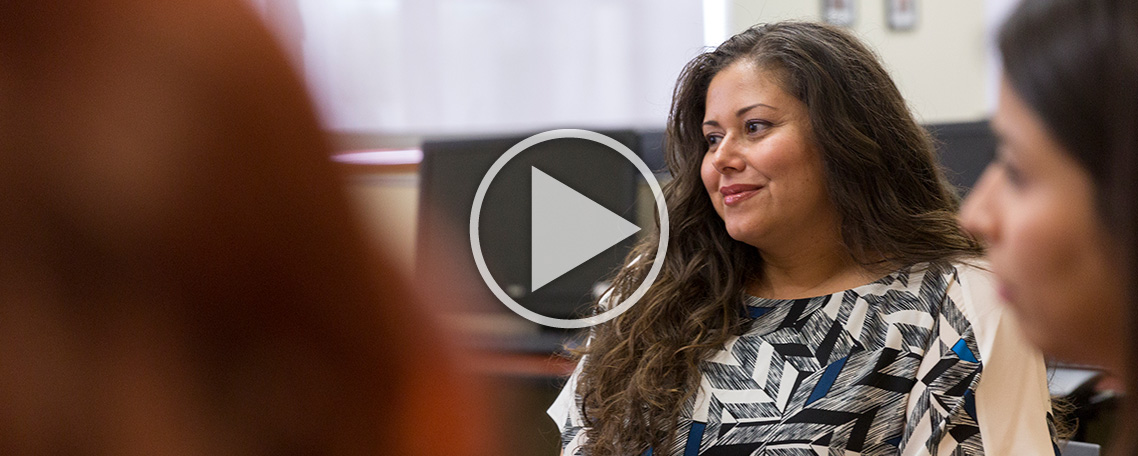Amanda Quintero, Ph.D., remembers well what it felt like when she found out she'd been accepted to the Educational Opportunity Program (EOP) Summer Bridge program at
California State University, Chico. She was elated, but she was also torn.
The 17-year-old had to make a very tough decision: pursue a college education and defy her family's wishes, or remain in her hometown of West Sacramento and find a job (as her mother wanted her to do), and wonder what her life might have been.
"I am the daughter of immigrant parents from Mexico. There was this expectation that I would stay at home," explains Dr. Quintero. Ultimately, she enrolled in the Summer Bridge program. "I was breaking away from tradition in my family; this was not something we had dealt with before."
That difficult choice would be the first of many she'd make to get to where she is today: serving as executive director of Student Academic Success and Equity Initiatives at
California State University Channel Islands.
"I want to be able to use higher education in a way that will serve and uplift communities," she says of the transformative work she does to advance underrepresented first-generation students.
A Bridge Between University and Community
Quintero had no way of knowing then that her experience in the summer of 1993 would be just the first of many at the CSU.
She earned a bachelor's in
global studies at
California State University, Monterey Bay and the campus also launched her work in student government. "At CSU Monterey Bay, I found my voice as a student and community advocacy leader … especially within the communities that I identified with," remembers Quintero.
Next came a master's degree in public policy and administration from
CSU Long Beach while working at the Office of the Chancellor, the headquarters of the 23-campus California State University system.
By the time she joined the staff of CSU Channel Islands in 2004, Quintero was ready for a role that leveraged both her professional expertise and her personal experiences. "[At CSUCI,] I found I could be that bridge between the community and the university so
everyone has access to education," she says.
Under Quintero's leadership, Channel Islands was recognized in 2010 as a
Hispanic Serving Institution (HSI); 21 of the CSU's 23 campuses are now
HSIs. To date, she has secured more than $26 million in federal grants to the campus, funding that has led to programs like
University Culture, which fosters a university-going culture in the local community.
 x
x
Bringing Parents into the Fold
Quintero's relationship with her mother remained strained for years. And while this intrepid young woman persevered, she knows how powerful family support can be — and how much it can improve a student's odds of finishing their degree.
"The only time my parents were on my campus were my graduations. They didn't know how to be involved in my education," says Quintero. "I do not want that to be the experience of our students."
Events on the CSUCI campus like "Noche de Familia," for example, give Spanish-speaking families a chance to interact with Spanish-speaking faculty, staff and students. "There is this big fear of [the student] breaking away," Quintero explains. "Parents want to know things like where their child will live and what they will be doing while at our campus."
Families of first-generation students can find these events hugely reassuring. "They are hearing the answers from students and faculty who look like their children, they are seeing how well-adjusted and happy our students are here," she continues.
"These parents have a whole lot of questions and they want someone to answer them in a way that doesn't make them feel inferior just because they have not had that educational experience."

I found I could be that bridge between the community and the university. — Dr. Amanda Quintero
